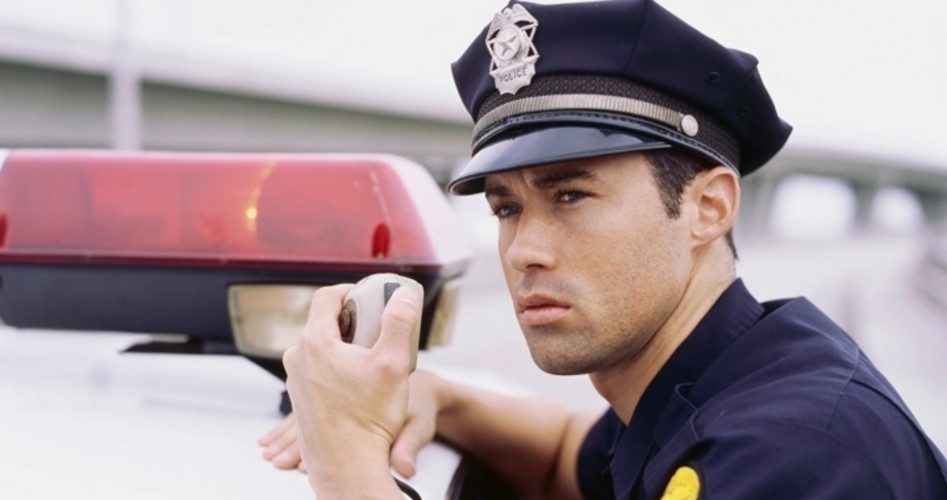
Kentucky’s Supreme Court has ruled that highway checkpoints of drivers who refused to display a $10 city sticker in their window are in fact unconstitutional and therefore, illegal.
The city of Liberty required all 1,850 residents and anyone working within the city limits to purchase and display the sticker, but teachers at a local school had failed to do so, prompting local police to take action.
Those individuals who refused to purchase a $10 sticker and place it in their vehicle windows were targeted by city officials, who mandated that police set up roadblocks. Those who had the stickers were permitted through the roadblocks, but those who did not were interrogated and had their vehicles searched, a procedure the Kentucky Supreme Court has found to be in violation of the Fourth Amendment.
Joseph A. Singleton was one of the stickerless drivers who was stopped at a checkpoint and interrogated. When cops searched his vehicle, they found a small amount of marijuana. Singleton moved to suppress that evidence on the grounds that his vehicle was stopped without probable cause in violation of the Fourth Amendment.
“The checkpoint’s only purpose was to enforce a revenue-raising tax upon vehicles in the city,” the court ruled. “Thus, the checkpoint to enforce the sticker ordinance comports with none of the purposes which the United States Supreme Court has found to be important enough to override the individual liberty interests secured by the Fourth Amendment.”
The court went on to begrudge the methods by which authorities preyed upon residents who did not display their stickers, particularly since the primary violators were teachers. The court determined that police officers could have simply visited school parking lots rather than setting up roadblocks.
“We also recall that the initial concern that sparked the need for the checkpoint was the report that some teachers had failed to pay the sticker fee,” the justices ruled. “That concern could have been addressed by means far less intrusive than a traffic checkpoint. For example, police officers could have simply walked through the school parking lot and cited cars without a sticker.”
The Newspaper.com analyzed the decision of the Kentucky Supreme Court:
Through a series of decisions, the US Supreme Court has authorized suspicionless roadblocks for the purpose of finding illegal aliens up to 100 miles from the border, verifying drivers’ licenses and registrations, looking for drunk drivers and responding to a specific crime that took place on the same highway as the roadblock. A dozen states have disagreed with these practices and outlawed one or more of these types of roadblocks by citing their own state constitutions. The Kentucky Supreme Court found none of these exceptions applied in the case at hand.
Despite the victory in Liberty, Kentucky, the federal government continues to make use of highway checkpoints under the jurisdiction of the Transportation Security Administration. In October of 2011, for example, Tennessee’s Homeland Security Commissioner announced that new “security checkpoints” would be implemented over the Halloween period to “keep the roadways safe for trick-or-treaters.” Likewise, it was announced in that same month that the TSA would be manning highway checkpoints in Tennessee as well to target truck drivers.
The DHS has expanded checkpoints at border crossings, which force drivers to go through X-Ray scanners similar to those used in airports. According to the United States Supreme Court, there is seemingly nothing wrong with warrantless searches. Last year, SCOTUS upheld the warrantless search of an apartment after police smelled marijuana. The SCOTUS case came from Lexington, Kentucky, where police in pursuit of a drug suspect banged loudly on the door of an apartment wherein they believed marijuana was being burned.
Police, after having heard noise in the apartment and believing the residents to have been burning evidence, broke down the door. Once inside, they discovered Hollis Deshaun King, smoking marijuana. They also found cocaine inside of the apartment. But King was not the suspect for whom police were searching. Still, that did not stop police from charging him with multiple crimes. King was sentenced to 11 years in prison. The Daily Paul explains the issue of constitutionality in this case:
The Constitution bars warrantless searches except in certain circumstances — for example, when police fear that evidence of a crime is being destroyed. The question in this case was whether police, by themselves creating such emergency circumstances, unconstitutionally evade the warrant requirement.
It’s rather difficult to argue against the unconstitutionality of unwarranted searches, however, when the government’s Transportation Security Administration is permitted to conduct those kinds of searches on a daily basis.
Texas Congressman and GOP presidential contender Ron Paul, as well as his son, Kentucky Senator Rand Paul, have been outspoken critics of the Fourth Amendment violations at the hands of the TSA, calling instead for private security at airports.
“I voted against the Department of Homeland Security and the TSA, and it’s a bureaucratic monster,” Senator Rand Paul said on Fox News Sunday. “It totally voids the concept of the Fourth Amendment — searches and prodding a poking, you know, with no permission. And they trap us into it, and there’s no way you can travel if you don’t do it.”
Unfortunately, in 1973, U.S. Court of Appeals for the Ninth Court ruled that the Fourth Amendment did not apply to airport security, “noting that airport screenings are considered to be administrative searches because they are conducted as part of a general regulatory scheme, where the essential administration purpose is to prevent the carrying of weapons or explosives aboard aircraft.”
Still, the ruling of the Kentucky Supreme Court in regards to the unconstitutional vehicle searches at roadblocks is a step in the right direction and proves that the entire judicial system does not enjoy a rather loose interpretation of the United States Constitution.




